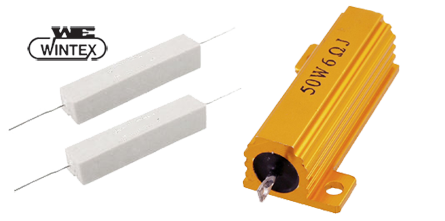
Ceramic Housing Resistors
Certainly! Ceramic cement resistors are a specialized type of resistors designed for specific applications. Let’s explore their features and use cases:
- Construction and Composition:
- Ceramic cement resistors combine the properties of wire-wound resistors or metal film resistors with a ceramic case sealed using cement.
- The core of these resistors consists of a resistance wire (often made of alloys like nichrome or constantan) wound around a ceramic or fiberglass core.
- The cement-like material encapsulates the wire coil, providing mechanical stability and electrical insulation.
- Properties and Advantages:
- Heat and Pressure Resistance: Ceramic cement resistors exhibit improved resistance to heat and pressure due to their robust construction.
- High-Power Applications: They are ideal for applications requiring high-power resistance.
- Stability: The ceramic core ensures stability and reliability even under challenging conditions.
- Applications:
- Power Electronics: Ceramic cement resistors are commonly used in high-power electronic circuits, such as power supplies, motor drives, and amplifiers.
- Load Resistors: They serve as load resistors in power testing and calibration.
- Heating Elements: Due to their heat resistance, they find use in heating elements and temperature control systems.